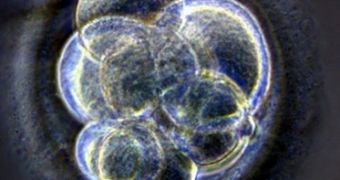Stem cell transplant can save the life of leukemia and lymphoma patients, but this comes with a heavy toll: lowered sexual function. If men are likely to bounce back from this over time, women's sexuality seems to be compromised forever. However, the recovered sexual functions of men or women survivors never reach back the same levels as those of their counterparts who have not experienced cancer.
"Survival without a sex life should not be what cancer survivors settle for or what health-care professionals consider a successful outcome of cancer treatment. Sexual dysfunction in survivors of cancer needs to become a priority for research funding and a routine topic of discussion between doctors and their patients after cancer treatment.", said lead researcher Dr. Karen Syrjala, co-director of the Survivorship Program at the Fred Hutchinson Cancer Research Center.
Through the allogeneic hematopoeitic stem cell transplantation technique, patients with blood or bone marrow conditions, or some types of cancers receive new stem cells from a sibling or matching unrelated donor to replace the diseased cells in their bone marrow, that form the blood cells. Before having the transplant, high-dose chemotherapy will destroy residual cancer cells and decrease the activity of the immune system so that the patient's body will accept the new tissue.
161 patients scheduled for this procedure at the Fred Hutchinson Cancer Research Center in Seattle, aged 22 to 64, with an average of 41 and an even repartition by gender completed a questionnaire of their sexual health. After the procedure, they completed the questionnaire at the six-month interval for five years. The response rate to the questionnaire was on average of 84 %.
The 37 questions compassed domains like desire, arousal, orgasm, satisfaction, activity, relationship, masturbation, and sexual problems. Those who were not sexually active had to choose from a list of possible reasons.
After five years, the results were compared with a control group made up of siblings or friends of the subjects, within five years of the subject's age, matching his/her gender, ethnicity, race, and educational background. Volunteers from the same community matching the criteria were selected if there were no such friends/siblings.
At the six-month interval, both sexes had lower sexual activity, but after one year following the procedure, sexual activity for the most men (74 %) had returned to the levels corresponding to the beginning of the survey. For females, this took longer: just 55 % recovered after two years. Even in case of restored sexual activity, 46 % of the men and 80 % of the women accused problems impairing sexual function, most likely provoked by systemic therapies, like total body irradiation and chemotherapy chemicals (alkylating agents), which harm the endocrine glands, crucial in the development and function of the reproductive system.
Moreover, chronic graft-versus-host disease (GVHD), a common secondary effect of transplantation experienced by 65 % of the patients induces shrinkage of the vaginal tissues and modifications to the vaginal lining, causing sexual dysfunction. In men, testosterone amounts and the cavernosal arteries of the penis are damaged, impeding erectile function.
Lack of sex drive also installed in about 20 % of female survivors at both six months and five years, thus the problem was not solved in time. In men, the lack of sex drive decreased from 14 % to 6 % between six months and five years.
At the five-year interval, the rates of sexual activity and sexual function for both men and women subjects were under those of the control group, pointing that they did not completely recover from the effects of the disease and its treatments.
Supplementary researches would explain if hormone therapies helped these patients. For men, testosterone replacement, erectile-function medications, and other treatments can be considered if problems persists following the transplant. Women should focus on communicating with their partners about changes in sensations, sex drive increasing methods, use of vaginal lubricants, dilators, or vibrators.

 14 DAY TRIAL //
14 DAY TRIAL //